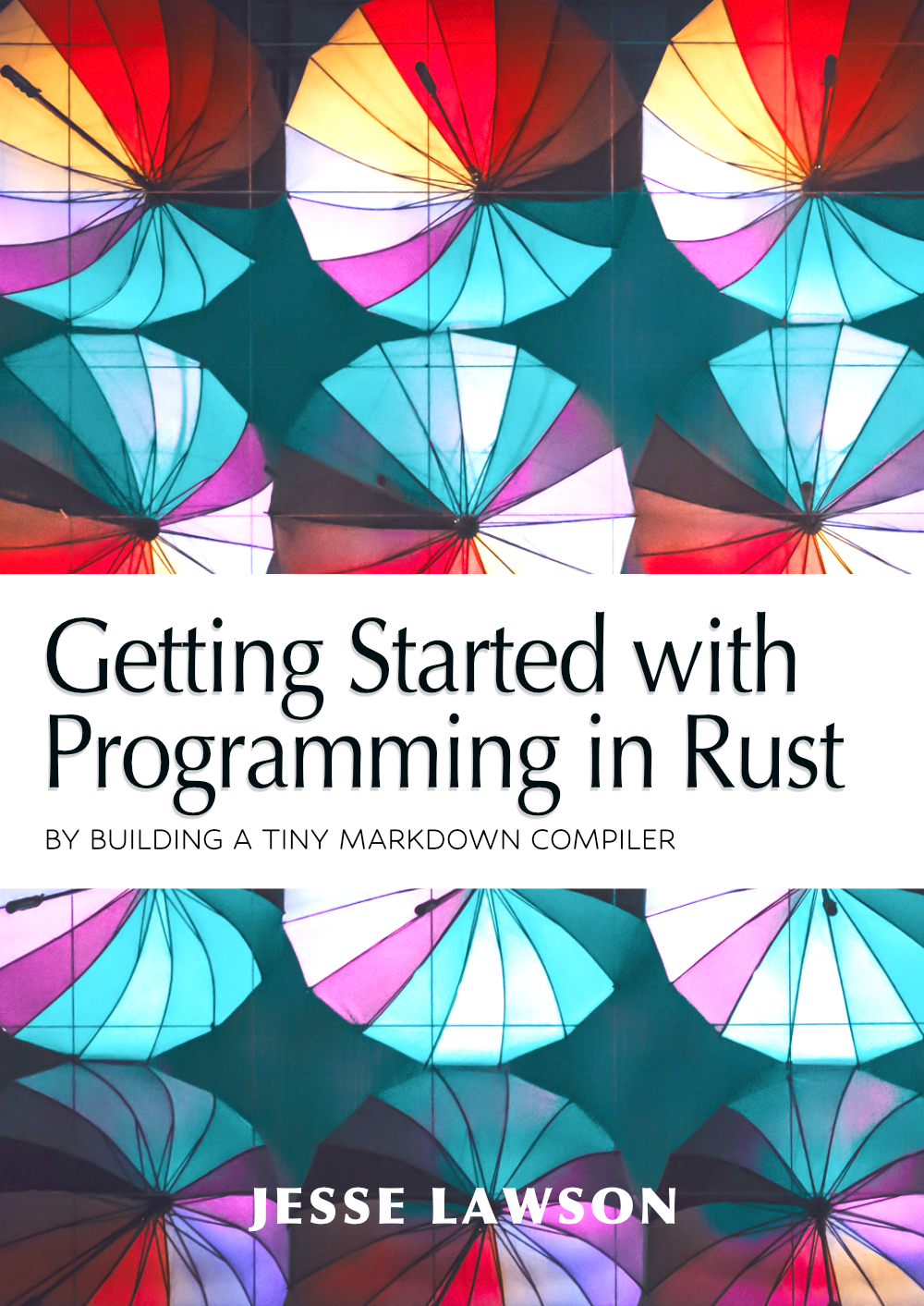Passing arguments to functions
The last thing we need to do in the main() function is to pass the second
argument into the function that parses the markdown file–parse_markdown_file().
To do this, we need to change the declaration of parse_markdown_file() to
accept a single argument: a string slice that is the filename to parse.
To add an argument to a function, you declare it the same way you would a
regular variable, except this time you can omit the let. Let’s modify the
function to accept a string slice argument named _filename:
| |
I’m using an underscore (_) here in the filename variable to remind me that
this is coming from a function parameter. Feel free to name it whatever you want.
Let’s also go ahead and put some placeholder text in there to help us see when this function is called:
| |
Here I have it outputting the short banner and then the informational message.
Now, if we were to invoke the tool with cargo run -q afile.md, it should
tell is [ INFO ] Trying to parse afile.md.... We will continue fleshing out
this function in the next chapter.
Finally, we have to actually pass the filename to the function, back down
in the match block we had finished earlier. When args.len() is 2, we want to
pass the second element in the args vector to parse_markdown_file(). To do
that, we will simply pass it as a string slice (since the function accepts a
&str as the argument):
| |
Notice how we access the 2nd element of args the same way we might do it in
other languages. Also note that we are using the reference operator here; we
don’t want to pass args[1] in, since that would move the value into the
function–causing args[1] to be null. Remember: in Rust, assignment is a
move, not a copy!
Go ahead and build and run your project: cargo run -q. Here’s what mine says:
$ cargo run -q
[ ERROR ] You forgot to specify the markdown file to parse!
tinymd (v0.1.0), A tiny markdown compiler based on Jesse's tutorials.
Written by: Jesse Lawson <drwho@nsa.gov>
Homepage: https://jesselawson.org/rust
Usage: tinymd <somefile>.md
Next, let’s pass it the name of a fake file to see if we setup our logic correctly:
$ cargo run -q test.md
tinymd (v0.1.0), A tiny markdown compiler based on Jesse's tutorials.
[ INFO ] Trying to parse test.md...
